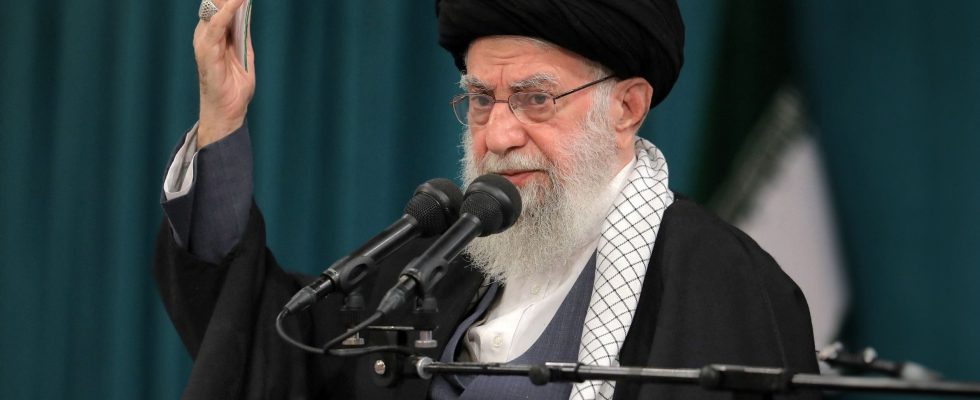All night, from Sunday to Monday, evidence of the divorce between the Iranian people and the Islamic Republic lit up the skies of the country’s major cities. From Tehran to Mahabad, in Iranian Kurdistan, fireworks and cries of joy responded to the announcement of the crash of President Ebrahim Raïssi’s helicopter, which disappeared in the hostile mountains near Azerbaijan. According to several witnesses, those who did not dare to celebrate in the Iranian streets, because of the omnipresence of military and paramilitary forces, honked their horns with all their might to celebrate the news.
The next morning, five days of national mourning were decreed by the authorities, without the atmosphere seeming conducive to contemplation. Joy dominated among the opponents, while the fear of instability gripped the supporters of the regime. The Islamic Republic also underlined, as soon as the crash was announced, to what extent the country was stable. Which obviously suggests the opposite. “The loss of Raïssi represents a hard blow for [l’ayatollah] Khamenei and constitutes a potential destabilizing factor for the regime, judges Iranian political scientist Hamid Enayat. Raisi’s death comes at a time when the Iranian regime is already grappling with numerous internal and external crises, further exacerbating its vulnerabilities.
According to the Constitution of the Islamic Republic, new elections must be held within the next fifty days. The result does not worry the authorities, as these ballots are supervised and planned in advance. In 2021, only three candidates were allowed to run, leaving the path clear for the supreme guide’s favorite, the very loyal and brutal Ebrahim Raïssi.” This president was one of the pillars of a system that imprisons, tortures and kills those who dare to criticize him, underlines Hadi Ghaemi, director of the Center for Human Rights in Iran. His death allows him to escape all his crimes as well as the atrocities committed by the state while he was its leader. ” In 2023, 53 Iranian opponents would have been executed, according to Amnesty International.
But in Iran, even under the Islamist dictatorship, times of voting always correspond to times of demands and debate. So, when inflation reaches 40%, when demonstrators are executed almost every day and when the “Women, Life, Liberty” movement remains very much alive despite terrible repression, the regime necessarily fears these days of political uncertainty. “Clearly, in recent years, the Iranian state has struggled to maintain control over events,” continues Hadi Ghaemi. “The international community must be vigilant, we fear an escalation in repression against civil society in this period of instability.”
Risks of influence war
Another factor of concern for the regime concerns participation in the elections. Since the Islamic Revolution of 1979, the Iranian authorities have been keen to maintain a veneer of legitimacy and have relied on elections to demonstrate their “success” to the whole world. But in recent years, faced with less and less free elections, abstention has broken records. In the legislative elections last March, participation did not exceed 8% in the Tehran region… “It seems obvious that the Islamic Republic is going through a deep crisis,” points out Saeid Golkar, an Iran specialist at the University of Tennessee. You never know in advance the day of the fall of a political regime, but it is always following an unpredictable event. However, when you observe Iranian society and the Islamic Republic, you can only see. a yawning gap that continues to widen.”
These coming days also risk opening a war for influence within the Iranian regime. The different factions of the Islamic Republic – religious, military and economic – will try to impose their candidate on the supreme leader, Ali Khamenei. The latter had chosen Raïssi as the ideal candidate, he who had been his student and blindly followed the supreme guide. “Raissi was sufficiently violent and devoid of conscience to implement all of Khamenei’s decisions, even the most despicable ones,” breathes Saeid Golkar. This absolute dedication to the Islamic Republic had made Raisi the favorite to take over from Ayatollah Khamenei, 85, in fragile health. On this issue too, the war of succession could do damage within the Iranian regime.
.
